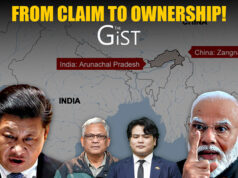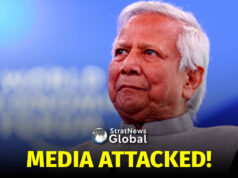NEW DELHI: Pakistan’s outburst against Saudi Arabia is part domestic compulsion, part unwillingness to recognise global realities, Aparna Pande says on ‘Talking Point’, while Shuja Nawaz warns “Pakistan will lose if it swings like a pendulum between Saudi Arabia and China.”
Pakistan’s Army Chief and ISI DG returned from Saudi Arabia this week without meeting the Crown Prince. The visit took place after Foreign Minister Shah Mehmood Qureshi issued an ultimatum for the Organisation of Islamic Cooperation (OIC) to call a ministerial meeting on Jammu and Kashmir. Pakistan reportedly was then forced to repay $1 billion of a $3 billion Saudi loan and Riyadh is said to have frozen a $3.2 billion oil credit facility. China apparently stepped in to help Islamabad and Foreign Minister Qureshi is currently in Hainan for the second China-Pakistan foreign ministers’ strategic dialogue.
The OIC represents “1.8 billion people with 1.8 billion views,” so countries other than the founder, Saudi Arabia, like Turkey, Malaysia and Qatar “are vying to take over leadership on particular regional issues,” says Nawaz, Distinguished Fellow, South Asia Centre, Atlantic Council. Pointing out double standards, Dr Aparna Pande, Director, Future of India & South Asia Initiative, Hudson Institute, says “Pakistan has ignored the Uyghur issue for decades because of its China relationship”.
“Saudi Arabia and the Gulf countries have built and want better economic, military and strategic relations with India,” Dr Pande points out. Nawaz agrees, saying, “Saudi trade with India far exceeds trade with Pakistan,” and reminding of counter-terrorism cooperation going back to the Mumbai attacks when Riyadh extradited Abu Jundal. Pakistan “presumes periodically” that “it’s more important than its Saudi, Chinese or American allies,” Dr Pande tells StratNews Global Associate Editor Amitabh P. Revi, while Nawaz says “Pakistan can take only so much advantage of its strategic location”.
The Director at Hudson Institute notes “the play involving China and Saudi Arabia, two of Pakistan’s current ideological allies,” while the Atlantic Council Distinguished Fellow describes Beijing as a “long game player” warning Pakistan that it should, “strengthen its ability to stand on its own feet rather than become totally dependent on one side or the other”. He also cautions Islamabad of the parallel connectivity route that China is working on with Iran, saying, “if CPEC (China-Pakistan Economic Corridor) projects are delayed for any reason, Beijing will have this other opportunity.” Dr Pande though points to the problem of U.S. sanctions and the difficulty with using local currency till the American dollar is paramount in international financial transactions. Shuja Nawaj concludes the conversation with the reminder that “the pandemic is having far reaching and long term effects and Indian and Pakistani politicians need to focus on the economy, trade and jobs rather than getting into spats aimed at strengthening their voter bases”.




